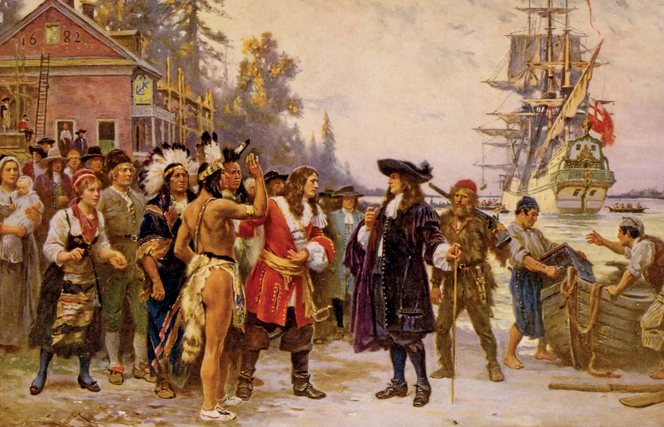Pennsylvania: The Quaker Legacy and the Claim that Shaped a Colony
In 1681, King Charles II of England granted a vast tract of land to William Penn to settle a debt owed to his father. This land, named "Pennsylvania" in honor of Penn's father, became a haven for religious freedom, particularly for Quakers who faced persecution in Europe.
Penn's Vision: A "Holy Experiment"
William Penn, a devout Quaker, envisioned Pennsylvania as a "holy experiment" in government, founded on principles of:
- Religious Tolerance: Penn welcomed people of all faiths, creating a society where religious freedom was a cornerstone.
- Fair Treatment of Native Americans: He sought peaceful relations with the indigenous Lenape people, negotiating treaties and purchasing land rather than seizing it by force.
- Democratic Principles: Penn established a representative government with a constitution that guaranteed individual liberties.
Early Settlement and Growth:
Penn's vision attracted settlers from across Europe, seeking religious freedom and economic opportunity. Philadelphia, the "City of Brotherly Love," became a thriving port and center of commerce.
Challenges and Conflicts:
Despite Penn's ideals, Pennsylvania's early history wasn't without challenges:
- Conflicts with Native Americans: While Penn sought peaceful relations, conflicts arose as European settlement expanded and encroached on indigenous lands.
- Boundary Disputes: Disputes with neighboring colonies, particularly Maryland, led to border conflicts and legal battles.
- Religious and Political Tensions: Despite the emphasis on tolerance, tensions sometimes flared between different religious and political factions.
A Lasting Legacy:
Despite these challenges, Penn's vision left a lasting impact on Pennsylvania:
- A Diverse Population: Pennsylvania's early embrace of religious freedom fostered a diverse population, contributing to its rich cultural heritage.
- A Tradition of Democracy: Penn's emphasis on representative government and individual liberties laid the foundation for Pennsylvania's role as a key player in the American Revolution and the formation of the United States.
- A Spirit of Innovation: Pennsylvania became a center of innovation and progress, contributing to advancements in science, industry, and agriculture.
Exploring Pennsylvania's Past:
Today, visitors can explore Pennsylvania's rich history at numerous sites and museums, including:
- Independence National Historical Park in Philadelphia: Explore the birthplace of American democracy and learn about the founding fathers.
- The Pennsylvania State Capitol in Harrisburg: Admire the impressive architecture and learn about the state's government.
- Gettysburg National Military Park: Walk the hallowed ground of the Civil War's most famous battle.
By understanding who first claimed Pennsylvania and the ideals upon which it was founded, we gain a deeper appreciation for the Keystone State's unique character and its enduring contributions to American history.



